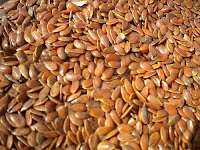This past Tuesday, May 15th was celebrated as the
International Day of Families. Initiated by the United Nations, this day is
celebrated the world over by it’s various agencies. Let’s take a look at the
family unit from a wellness perspective.
Family, for most of us, is the origin of our experience of
love, life, customs, traditions and nourishment. It also is a source of a
unique education that includes dealing with relationships, learning to express
yourself and communicate, being joyful in the company of loved ones, playing as
well as learning to be responsible for your health.
Let me start by saying that no parent intentionally creates
an environment negatively impacting wellness. In fact parents are the most
receptive group to information regarding health. By and large, every family
with access to the right information, tends to make healthier choices than
those with no awareness.
Dealing with the physical aspect of wellness, creating a
health-oriented environment for your family takes a little time, patience and
effort but is richly rewarding with results like reduced incidence of small
illness, increased energy and vitality, gaining ideal weight and meeting all
growth milestones.
If you want to change the way your family eats, it starts
with you – whether you are the child or parent. Accumulate information about
healthy eating habits, educate the others and implement them.
Here are some pointers:
- A lot of ideas evolve from family discussions. Get everyone involved in the process.
- Do your research, the internet is a great tool – look for credible sources of information – a few websites are listed at the bottom.
- Mother is your partner (and if you ARE the mother - you WILL make it happen -you’re the head of the kitchen aren’t you?)
- Implementation of what you learn can be tricky – consider your family member’s individual interests – your sister might like to cook with your mother whereas your father could help you set up a balcony herb garden.
- Do the weekly grocery shopping together. Avoid the sweets, chocolates, snacks (junk), biscuits, instant foods and soft drinks aisles – instead head first to the veggies and fruits section and choose among the colourful variety. Look for organic food if available. Better yet, go to your local vegetable market (less temptation maybe?). Learn to read nutrition labels (blog post dated 24th March, '10)
- Look up healthy recipes online – work together in the kitchen to create a healthy Sunday lunch.
- Get your grandparents involved so that their health benefits too.
Of course, physical activity matters too – Activities like hiking, trekking, cycling,
sports, etc get the whole family active. Go on an activity filled family
vacation or even a weekend. Research
proves that doing this makes the family a tighter unit, builds individuals’
confidence and willingness to communicate with each other. If one of you wants to start a consistent fitness regimen, it WILL require family support and encouragement. Even a high five from a sibling or parent at the end of a day's workout boosts your morale!
If one of your family has an unhealthy habit, for example
smoking or a junk food addiction – deal with it as a family, get sufficient
information on how to quit and support him / her to do it.
All for one and one for all! We want to nurture healthy,
productive human beings who make a difference in society and it WILL happen
with some thought and creativity.
Your Family’s time is NOW.
This article was published in 'Life in Adyar', Chennai - May 19th, 2012.
This article was published in 'Life in Adyar', Chennai - May 19th, 2012.



